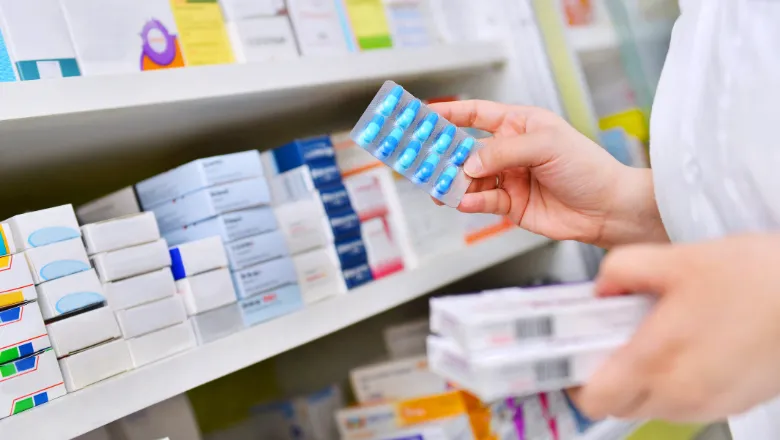
Dr Sarah M. Barry
Reader in Chemical Biology
- Strategic Equipment Lead
- Organic Chemistry 3 Module Lead
Research interests
- Chemistry
Biography
Dr Sarah M. Barry is a Reader (Associate Professor) in Chemical Biology and runs an interdisciplinary research group in the Chemistry Department, King's College London. The group focuses on investigating and exploiting bacterial metabolism, particularly natural product biosynthesis.
Sarah is an organic chemist by training and gained her BSc (Hons) in Science (Chemistry Major) from University College Dublin where she did her undergraduate research with Prof Pat Guiry on asymmetric transfer hydrogenation. She stayed at UCD to start a PhD with Prof. Peter Rutledge on iron catalysed oxidation on an IRCSET funded EMBARK postgraduate scholarship. She completed this work in the University of Sydney.
Sarah shifted focus for her postdoctoral research moving to the University of Warwick with Prof. Greg Challis where she developed her interest in enzymology of natural product biosynthesis.
During this time she developed an appreciation for the power of chemistry to answer biological questions as well as the potential of biology (eg enzymes, engineered microbes) to enable complex molecule synthesis.
Research Interests
- Natural product synthesis & biosynthesis
- Antimicrobial resistance
- Enzymology & Biocatalysis
- Synthetic Organic Chemistry
- Microbiology & Biochemistry
Teaching
- Organic Chemistry 2 and 3
- UG Research Methods Literature Review
- MSci Research Project and Dissertation
- MSci Research Project & Dissertation
- MRes Research Project in Interdisciplinary Chemistry
Research profile
For more information on Dr Barry's research please see her Research Portal page
The Barry Group
Research Associates
- Joshua Tomkins
Postgraduate Researchers
- Jessica Peate
- Sara Vasciaveo
- Alexandra-Georgiana Butulan
- Harry Winter
- Tamas Graff
Our multidisciplinary research aims to understand and exploit microbial biochemical pathways, towards sustainable catalysts and develop new antibiotics to tackle antimicrobial resistance.
Bacterial natural products are vital in the search for new therapeutics especially antibiotics. About 80% of clinically used compounds are natural product derived. In addition, the biochemical catalysts that orchestrate the creation of these complex molecules inspire chemists as they often carry out reactions that we cannot replicate synthetically.
Our research focuses on exploiting bacterial biochemical pathways to 1) identify and exploit enzymes with potential as biocatalysts for sustainable synthesis and 2) identity and manipulate new natural product biosynthetic pathways towards novel antibiotics.
We utilise organic synthesis, molecular biology , biochemistry and a range of analytical and spectroscopic methods.
Visit the Barry Group website to find out more.
Research

Microbes in Health & Disease
The Microbes in Health & Diseases Research Interest Group aims to foster collaboration across departments and faculties at KCL to explore the multifaceted role microbes play in health and disease.

Translational Research & Innovation in Microbial Sciences (TRIMS) - King’s Prize Doctoral Programme
This PhD programme is designed to tackle microbial challenges through cutting-edge technological innovation, fundamental and applied science with translational impact.
News
Breakthrough from King's scientists could speed up discovery of new antibiotics
The chemists have developed a new, rapid method for making cyclic peptides

Research

Microbes in Health & Disease
The Microbes in Health & Diseases Research Interest Group aims to foster collaboration across departments and faculties at KCL to explore the multifaceted role microbes play in health and disease.

Translational Research & Innovation in Microbial Sciences (TRIMS) - King’s Prize Doctoral Programme
This PhD programme is designed to tackle microbial challenges through cutting-edge technological innovation, fundamental and applied science with translational impact.
News
Breakthrough from King's scientists could speed up discovery of new antibiotics
The chemists have developed a new, rapid method for making cyclic peptides

